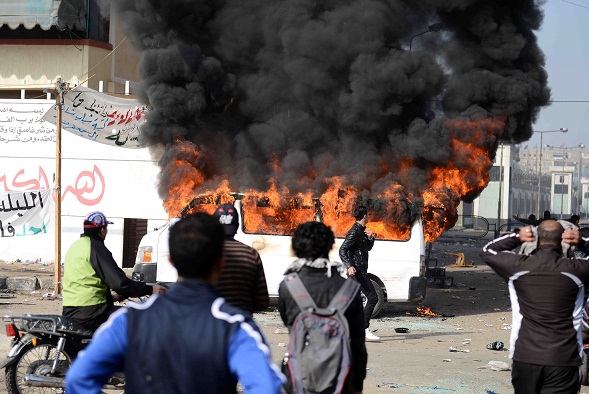ISLAMABAD: Pakistan restored access to popular video sharing website YouTube, but 1,200 web pages remained blocked Thursday as a row about "blasphemous" content on the Internet rumbled into a second week.
A contest organized by a user of social networking site Facebook calling on people to draw the Muslim prophet to promote "freedom of expression" sparked a major backlash in the conservative Muslim country of 170 million.
Islam strictly prohibits the depiction of any prophet as blasphemous and even moderate Muslims were deeply offended by the drawings that appeared on a Facebook page in an answer to the call for an "Everyone Draw Mohammed Day".
A Pakistani court on May 19 ordered a block on Facebook until May 31, implemented by the Pakistan Telecommunications Authority (PTA), which then banned YouTube and restricted access to other websites, including Wikipedia.
Islamic activists and students took to the streets, shouting "Death to Facebook", "Death to America" and burnt US flags, venting anger over what the PTA called "growing sacrilegious" online content.
YouTube, which is Google-owned, had said it was working to ensure the service was restored, although Google chief executive Eric Schmidt suspected that suppressing political criticism had been a factor behind the ban.
But late Wednesday, the regulatory authority in Pakistan said that YouTube — which together with Facebook accounts for up to 25 percent of Internet traffic in the country — was back up, although restricted.
"YouTube has been unblocked, but the links to sacrilegious content would remain inaccessible in Pakistan," PTA spokesman Khurram Mehran told AFP.
"There are around 1,200 URLs which have been blocked. These are not websites but links," he added on Thursday.
"Only links containing objectionable material have been blocked. More than half of these links were reported by the public," Mehran said.
A spokesman for the Internet Service Providers Association of Pakistan confirmed that the blanket ban on YouTube, which had not been tied to a court order, had been lifted but said about 550 URLs on the site were still blocked.
"The total (number of URLs restricted) is about 1,200," Wahaj us Siraj told AFP. "Out of those, there are about 550 URLs from YouTube only," he said.
Internet traffic in Pakistan had increased by about eight percent since late Wednesday, when the outright ban on YouTube was lifted, he said.
The court in the eastern city of Lahore, which ordered the ban on Facebook, is scheduled to convene on Monday to hear a petition from Islamic lawyers.
Although the caricatures were universally condemned in Pakistan, members of the Internet-literate urban elite criticized the blanket ban on websites.
Interior Minister Rehman Malik said pages containing blasphemous material would remain blocked but that Facebook and YouTube would be back up in days.
The government "strongly condemned" the sketches of the Prophet Mohammed and ordered the information technology ministry "to ensure that such blasphemous material is not allowed to appear on the Internet in Pakistan".
The controversy has yet to incite a mass outpouring onto the streets in Pakistan, where there are an estimated 2.5 million Facebook users, and demonstrations have not spread to other Muslim countries.
Facebook expressed disappointment at being blocked and the offending page disappeared from the social networking service Friday.
Pakistan also briefly banned YouTube in February 2008 in a similar protest against "blasphemous" cartoons of the Prophet Mohammed.

